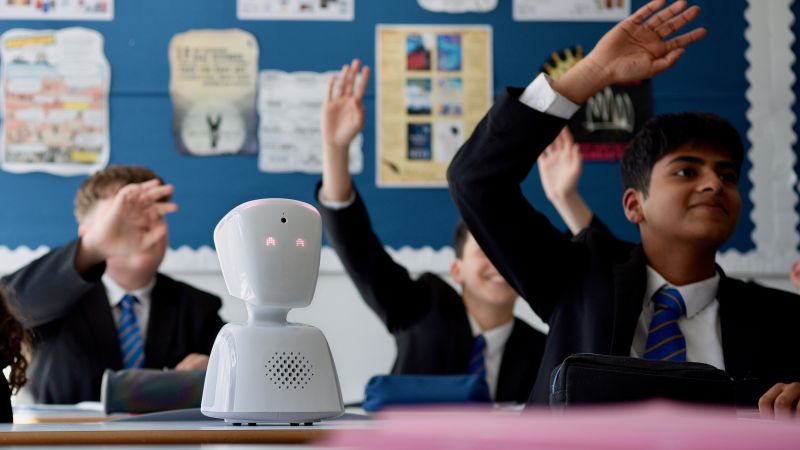The possibility of robots have been a fantasy, and a little bit of a joke, for decades. But you’ve all seen the news reports of robots being far more capable, and with AI, far more sophisticate than ever before.
This leap in capability is why Gartner (2025) chose robots as a technology we must pay attention to.
Opportunity Statement:
Is it possible that special-function robots will start being available to support classroom (and beyond) learning environments?
Sources:
Gartner Top Ten Technologies 2025: Polyfunctional Robots

From the Resource teachers perspective, robots could support designated students and their needs with speech, hearing, or mobility. These machines could promote students better access to learning and independence. However, these machines should only complement, not replace, EAs who bring crucial socio-emotional support and build relationships with students, building human connections that no robot would ever be able to replicate.
I do believe robots can play a significant role in enhancing classroom teaching by supporting educators, engaging students, and personalizing learning experiences. For example, Robots can take attendance, grade quizzes, and organize lesson materials, freeing up teachers’ time. They can help the instructor to grade students’ homework/feedback and auto filter misconceptions from students by eliminating repetitive practice. Robots like NAO and QTrobot assist children with autism or learning disabilities by providing structured, interactive lessons. Robots like LEGO Mindstorms and Sphero teach coding, robotics, and engineering through hands-on activities.
I am not familiar with NAO and QTrobot, but would like to know more about them, as I struggle when supporting students with diverse learning needs. I feel that I am quite capable at building rapport and a sense of belonging most students, but when it comes to adapting and modifying curriculum to meet diverse needs, I struggle. Narrow AI’s, designed to support teachers and train EA’s in this way would be invaluable.
Without having read the research, I have a hard time seeing robots as affordable solutions to support classroom learning. They would be incredibly expensive and I am already having a hard time getting laptops booked for my students in the public school district in which I teach..
Would these robots be general or more narrow in their AI design? I could see the possibility of integrating narrow minded robots to support specific, logistical tasks in education — like taking attendance and maintenance for example. More general minded AI robots would suggest an intention to eventually replace teachers. Unions and the humans losing their jobs — like teachers and educational assistants — would make the issue political and prevent this from happening. Current theories of learning would also rationalize why this would be a bad idea.